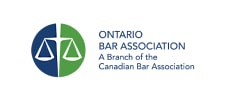When You’re Facing Revocation of Your Canadian Citizenship
 It’s overwhelming when you find out that your citizenship could be revoked. You’re probably unfamiliar with the procedure and you don’t know what to do. Contacting a citizenship revocation lawyer can assist you in this difficult situation.
First, let’s delve into some of the factors that could have caused your revocation letter.
It’s overwhelming when you find out that your citizenship could be revoked. You’re probably unfamiliar with the procedure and you don’t know what to do. Contacting a citizenship revocation lawyer can assist you in this difficult situation.
First, let’s delve into some of the factors that could have caused your revocation letter.
Causes for Revocation
The Strengthening Canadian Citizenship Act amending the Citizenship Act was passed by the former Conservative government and makes it easy for the government to revoke Canadian citizenship in certain situations: Your Canadian citizenship could be revoked if:- You obtained your citizenship under false representation or fraud or by knowingly concealing material circumstances.
- You were convicted of treason, high treason, or spying
- You served as a member of the armed forces of a country with which Canada is at war.
The Revocation Process
The Minister of Citizenship and Immigration or his/her delegate will be the one who will render a judgment. Formerly, certain cases were adjudicated by the Federal Court, but this was changed by the amendment to the Citizenship Act. Receiving notification that your citizenship is under question is a serious issue with complicated repercussions. You’ll need the expertise of a lawyer who specializes in citizenship revocation. They understand the system and how to explain it in layman’s terms. The case management branch of Immigration, Refugees and Citizenship Canada will initiate the process by examining the collected evidence related to your case and then they will decide if the revocation is warranted. If they believe that there are grounds for revocation, they will send a Notice of Intent to Revoke Citizenship to the affected citizen, setting out the grounds upon which they believe a fraud occurred in the citizenship process, and allowing the citizen 60 days to respond before a decision is made in the case. At this point in the process, you or your lawyer are allowed to make a written response to the accusations of fraud that have been leveled against you. A hearing could be required before a decision is made. Once the Minister has made a judgment, you’ll receive a Notice of Decision. During this procedure and until a judgment has been reached, you still have all the rights and privileges of citizenship, except one. The one thing you cannot do is apply to renounce your citizenship once you have received notice of the intended revocation of your status. If the Minister’s final decision is to rescind your citizenship, you will no longer have the rights and privileges of Canadian citizenship. This loss will go into effect on the date that the decision was handed down. Depending on the reason for the revocation, there are a few differences in the consequences:- If the Minister decides to revoke your citizenship status, you will revert to permanent resident status provided the fraud was related to your citizenship application only.
- If the fraud was related to your permanent residence application, you will be void of any status in Canada, even if that means you will be considered stateless.
Additional Articles About Spouse or Partner Sponsorship
Matthew Jeffery
April 10, 2017
Matthew Jeffery
April 11, 2017
Matthew Jeffery
April 11, 2017
Matthew Jeffery
April 11, 2017
Matthew Jeffery
January 24, 2018
Matthew Jeffery
April 11, 2017
Matthew Jeffery
January 17, 2017
Matthew Jeffery
April 10, 2017
Matthew Jeffery
January 19, 2017
Matthew Jeffery
January 24, 2018
Matthew Jeffery
April 11, 2017
Matthew Jeffery
July 12, 2018
Matthew Jeffery
April 11, 2017
Matthew Jeffery
April 11, 2017
Matthew Jeffery
January 24, 2018
Matthew Jeffery
April 11, 2017
Matthew Jeffery
January 24, 2018
Matthew Jeffery
January 24, 2018
Matthew Jeffery
January 24, 2018
Matthew Jeffery
April 10, 2017
Matthew Jeffery
September 15, 2016
Matthew Jeffery
January 19, 2017
Matthew Jeffery
April 11, 2017
Matthew Jeffery
September 15, 2016
Matthew Jeffery
April 10, 2017
Matthew Jeffery
April 10, 2017
Matthew Jeffery
January 17, 2017
Matthew Jeffery
April 10, 2017
Matthew Jeffery
April 10, 2017
Matthew Jeffery
January 24, 2018
Matthew Jeffery
July 12, 2018
Matthew Jeffery
March 28, 2016
Matthew Jeffery
July 12, 2018
Matthew Jeffery
July 12, 2018
Matthew Jeffery
April 10, 2017
Matthew Jeffery
January 24, 2018
Matthew Jeffery
April 10, 2017
Matthew Jeffery
January 24, 2018
Matthew Jeffery
April 10, 2017
Matthew Jeffery
January 24, 2018
Matthew Jeffery
July 12, 2018



















